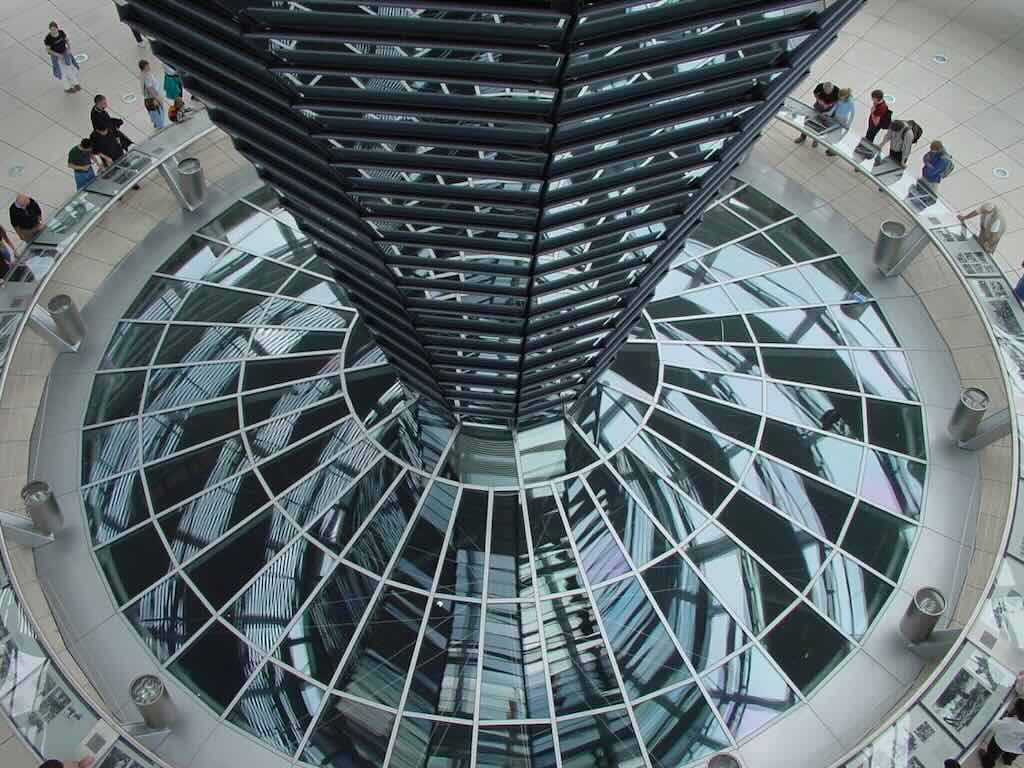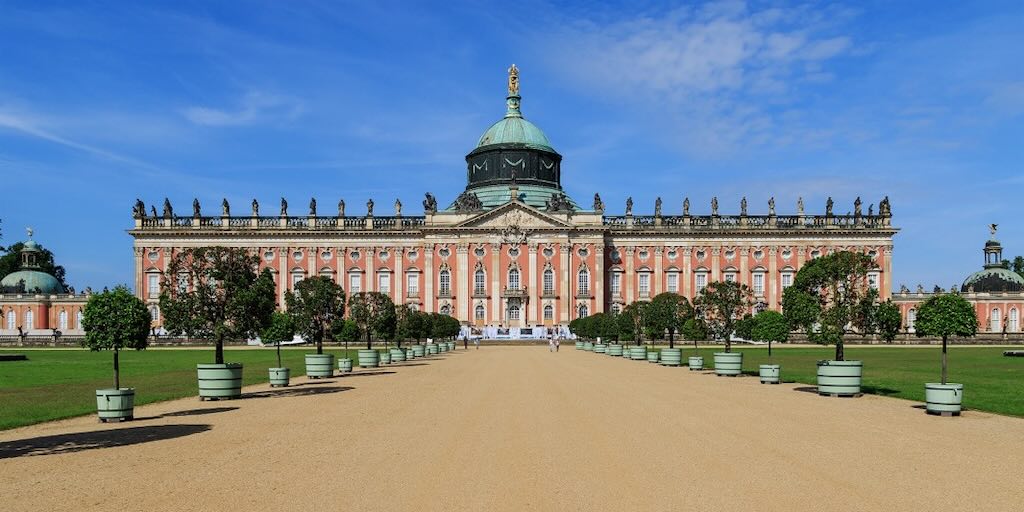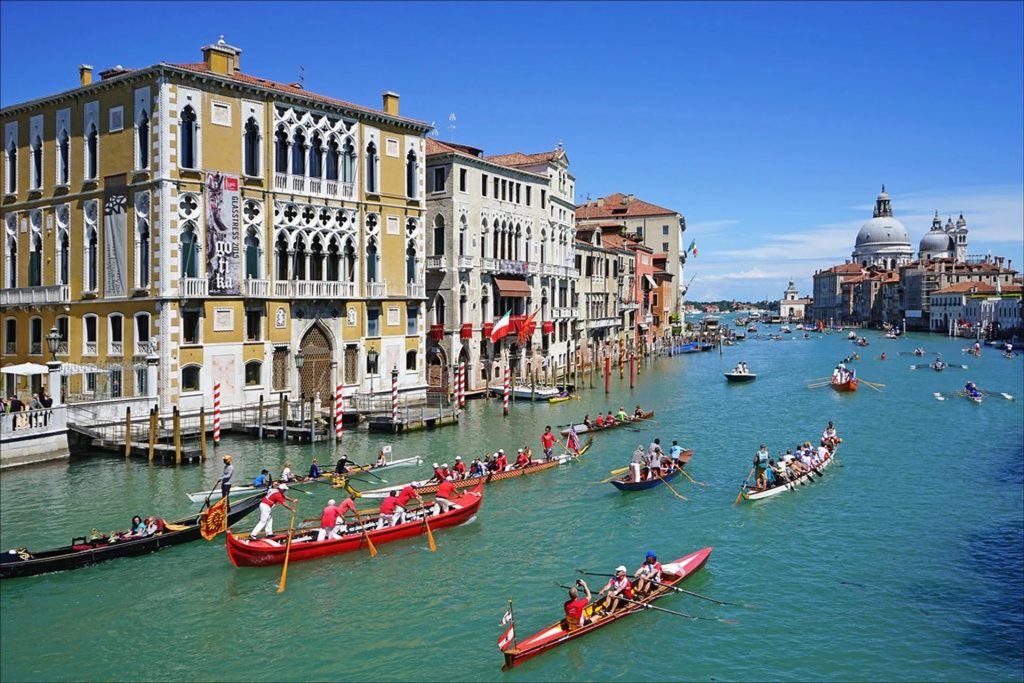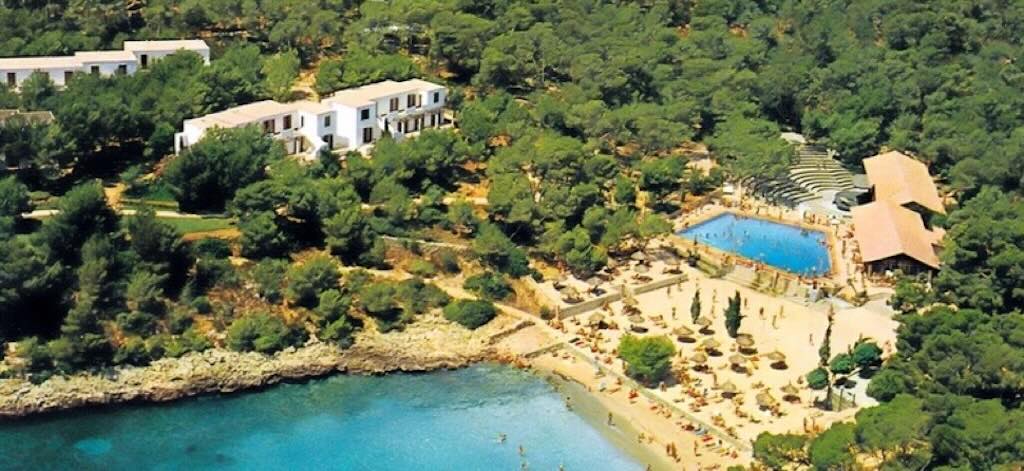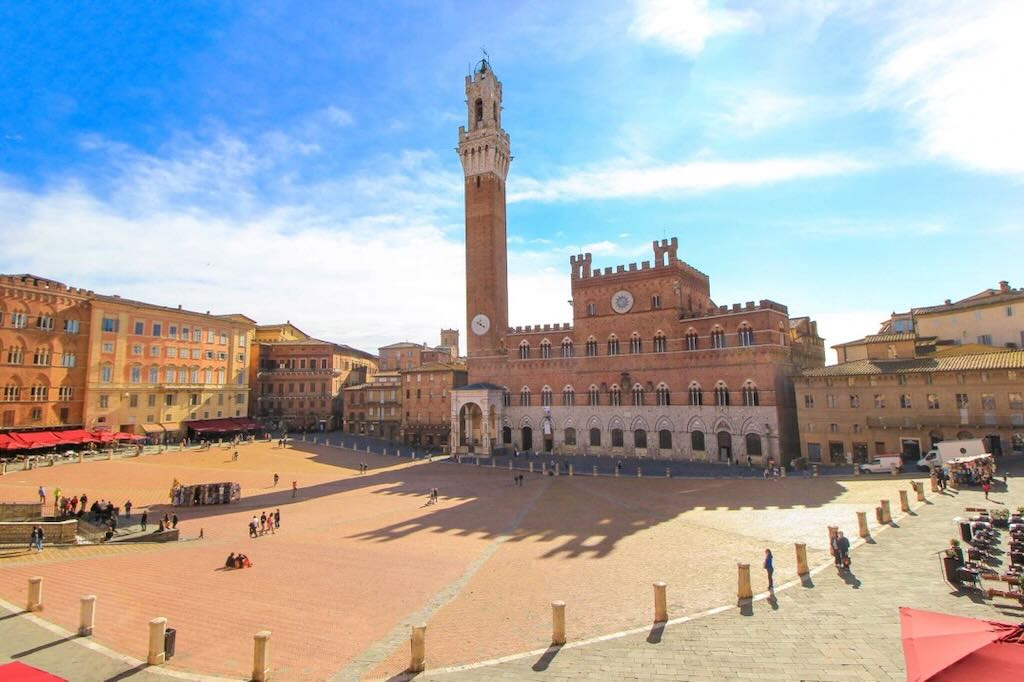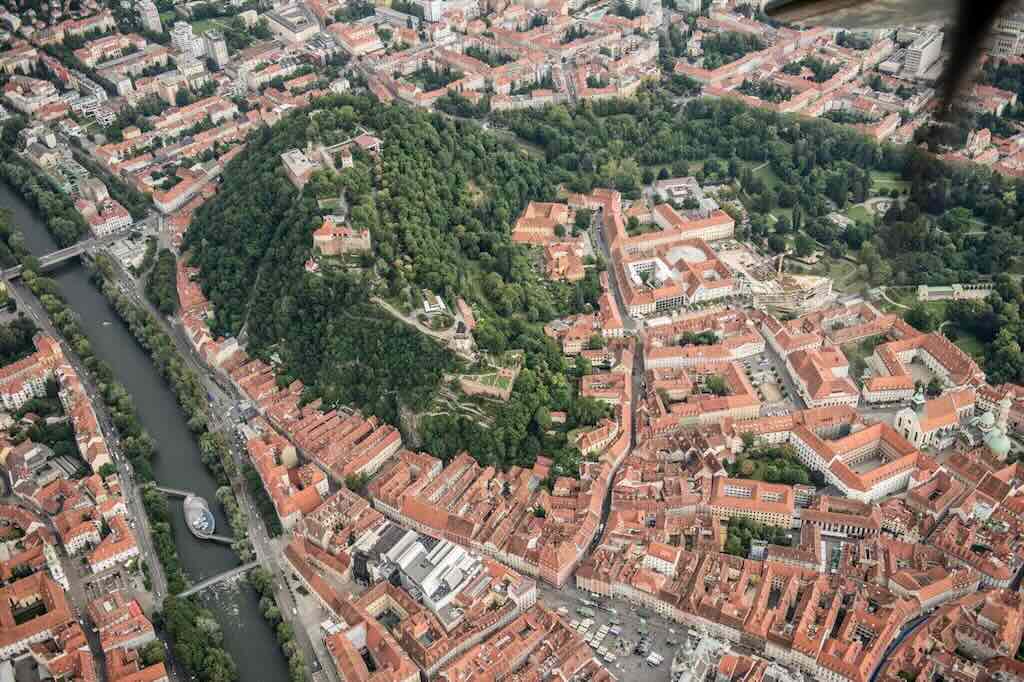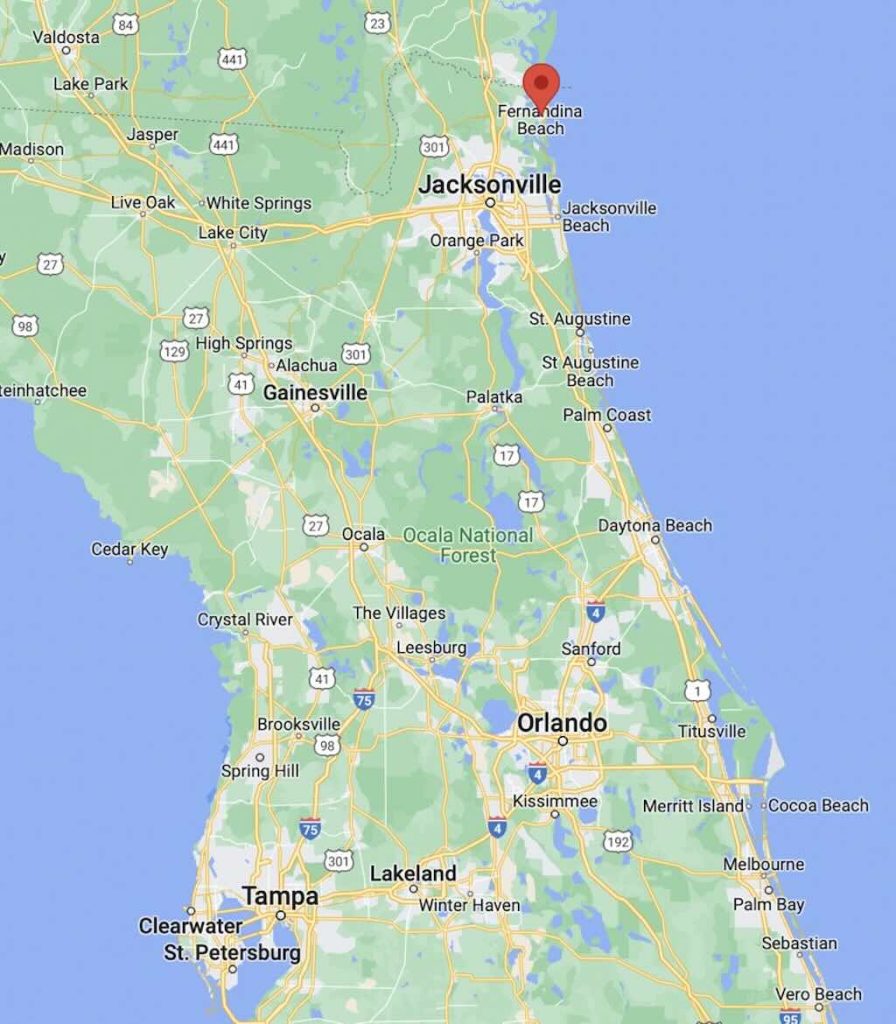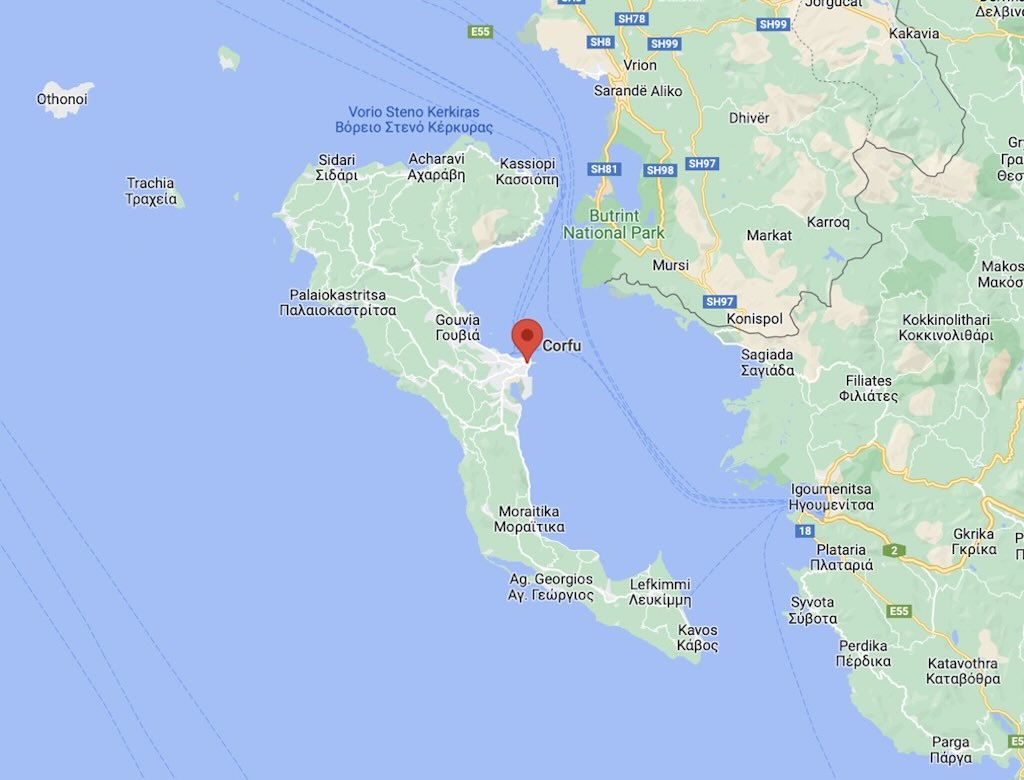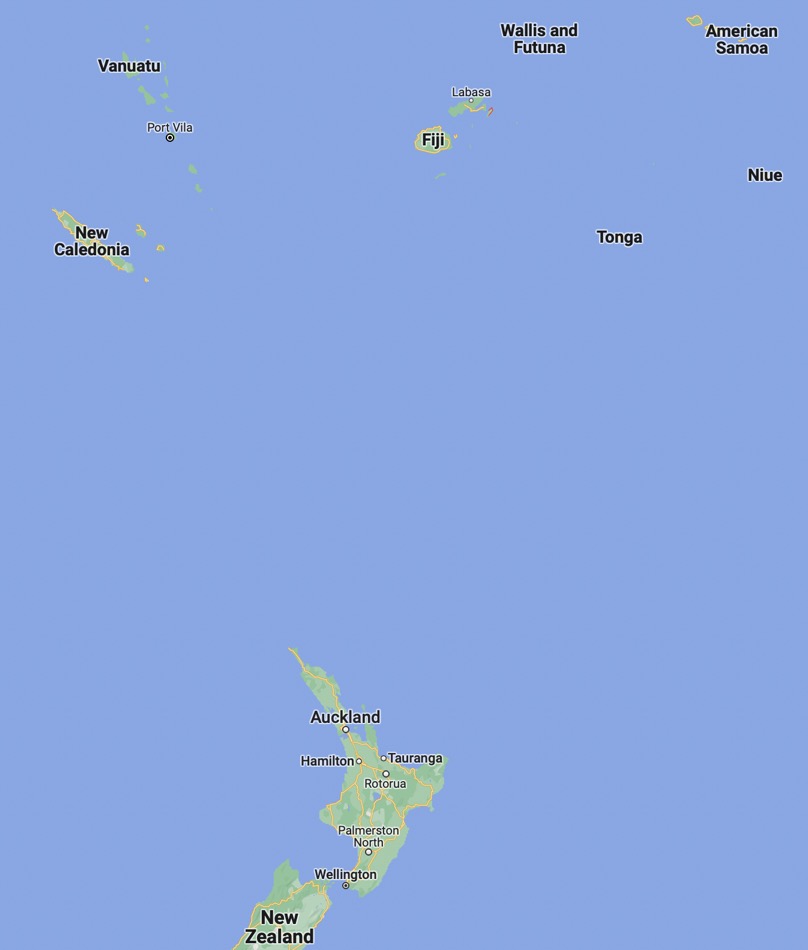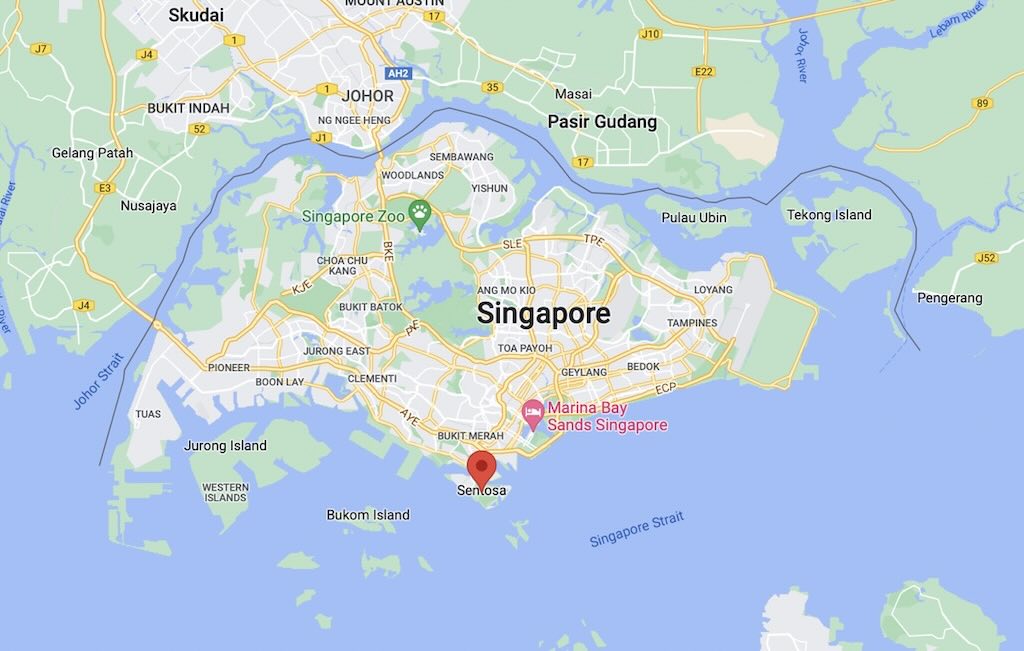It was July so we were able to enjoy a long stroll through the terraced gardens and the park.
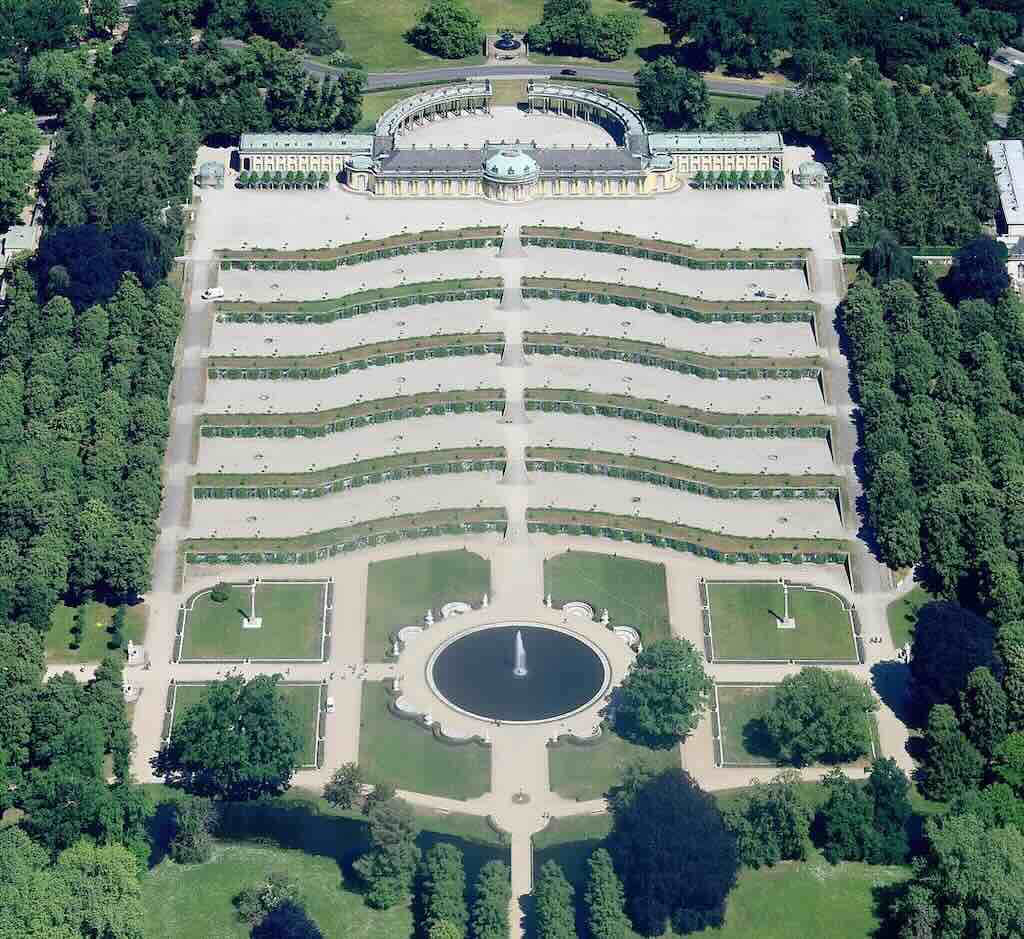
And we were able to visit the famous Chinesisches Haus (Chinese House), dating from between 1755 and 1764.
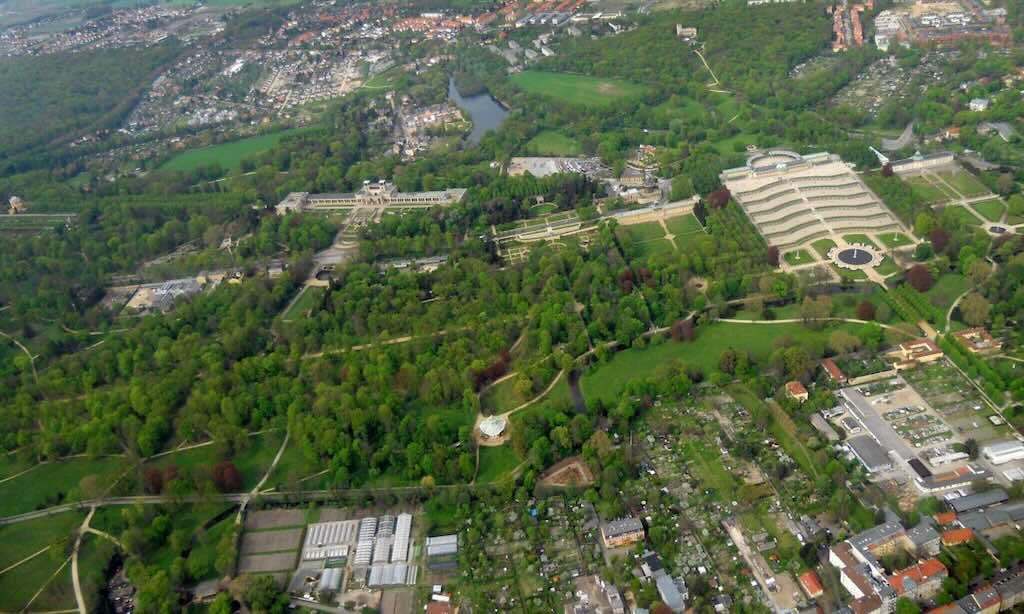
The gilded sandstone sculptures date from around 1750, and local people stood as models for the eating, drinking and music-making Chinese figures, which explains the statues’ European features. My wife became very friendly with one of the ladies.
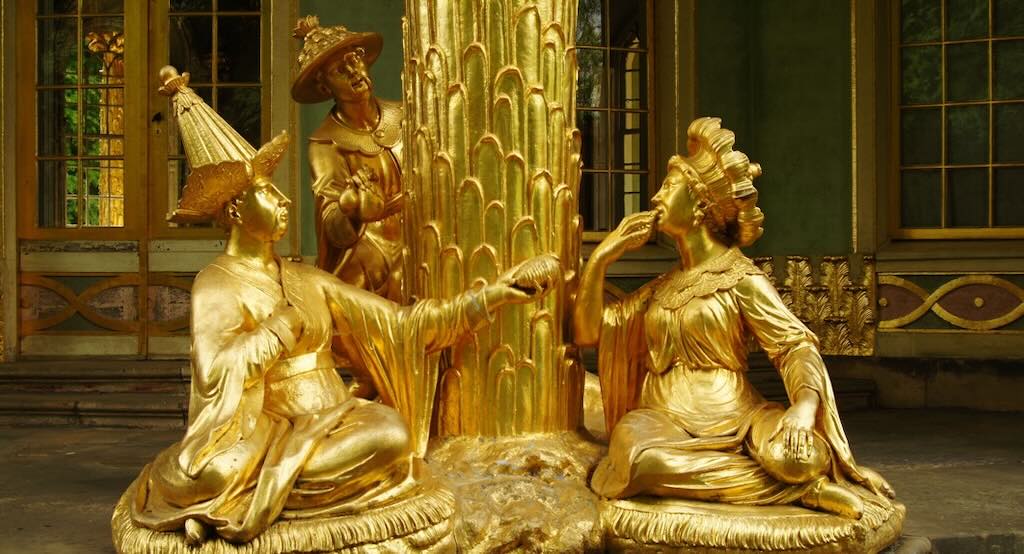
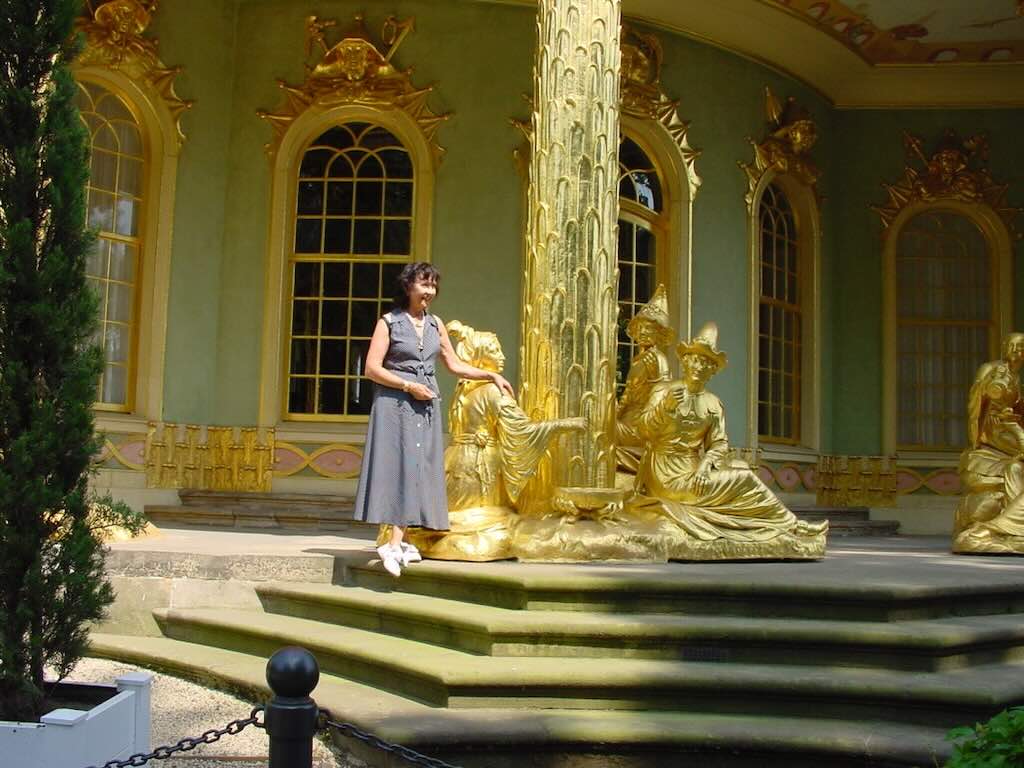
The next day started with a slow cruise along the River Spree followed by a visit to the Reichstag, home of the Bundestag, the lower house of the German parliament.
The river cruise is a great way to visit Berlin and see a few of the key sights, including the Oberbaumbrücke (Oberbaum Bridge) and the Bundeskanzleramt. Above we can see the famous double-decker bridge, road below and U-bahn above.
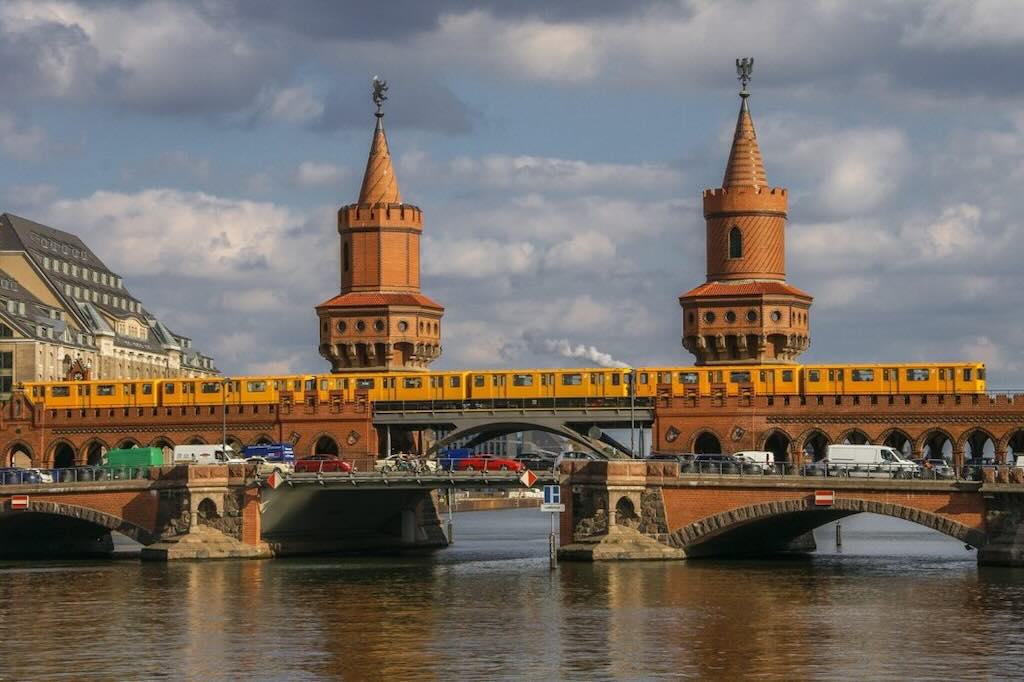
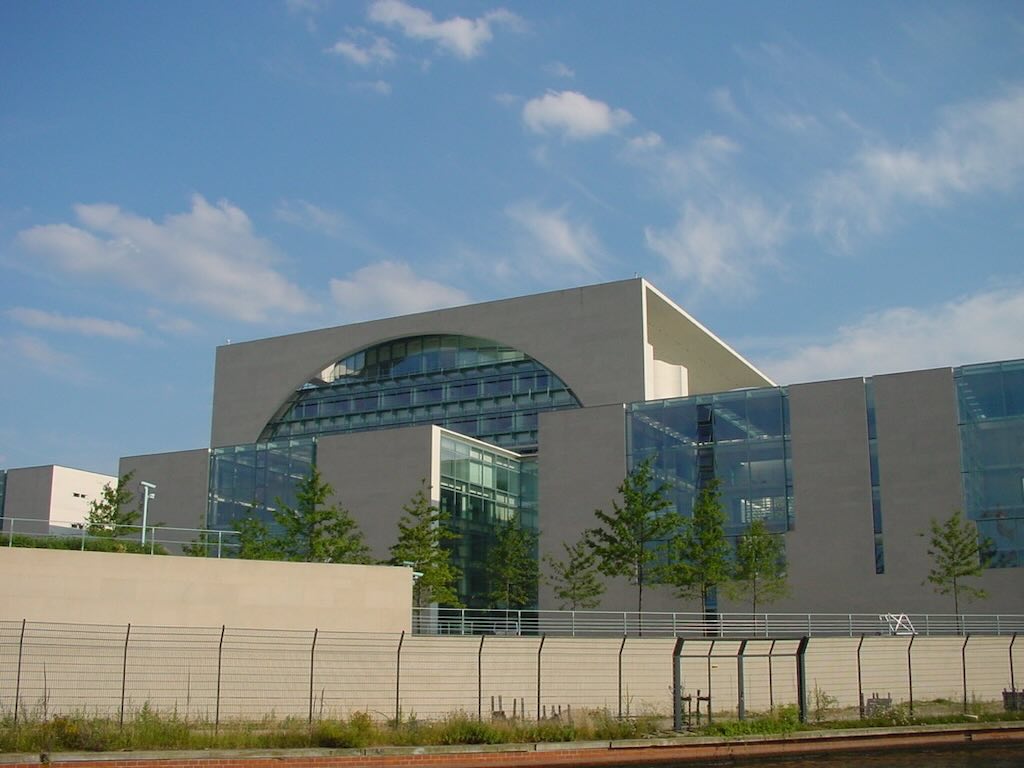
Above we have the Bundeskanzleramt, the Federal Chancellery, as seen from the river. It had only been completed 2 months earlier, and was still unoccupied. Not the most elegant of buildings, I only hope the trees have managed to soften its brutalist look.
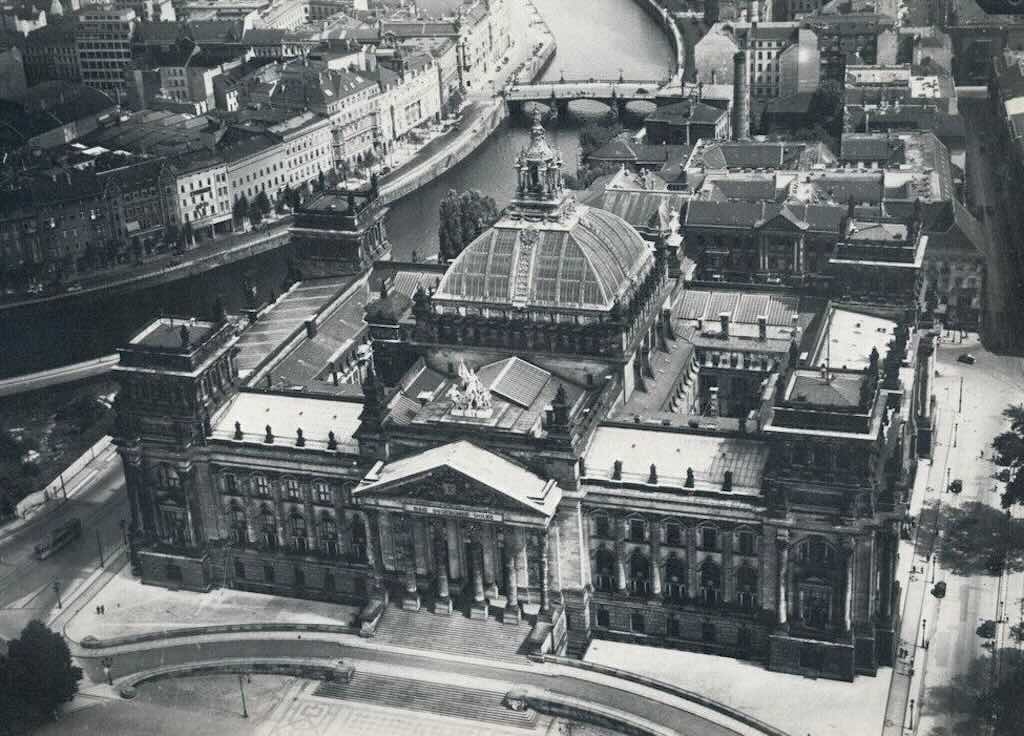
The Reichstag building is something of a symbol of the reunification of Germany. Initially a neo-Baroque building designed by Paul Wallot (1841-1912), it was completed in 1894. After the Reichstag fire in 1933 it was no longer used, and during the Cold War it remained in ruins until a reconstruction campaign was terminated in 1971 (when the damaged cupola was removed).
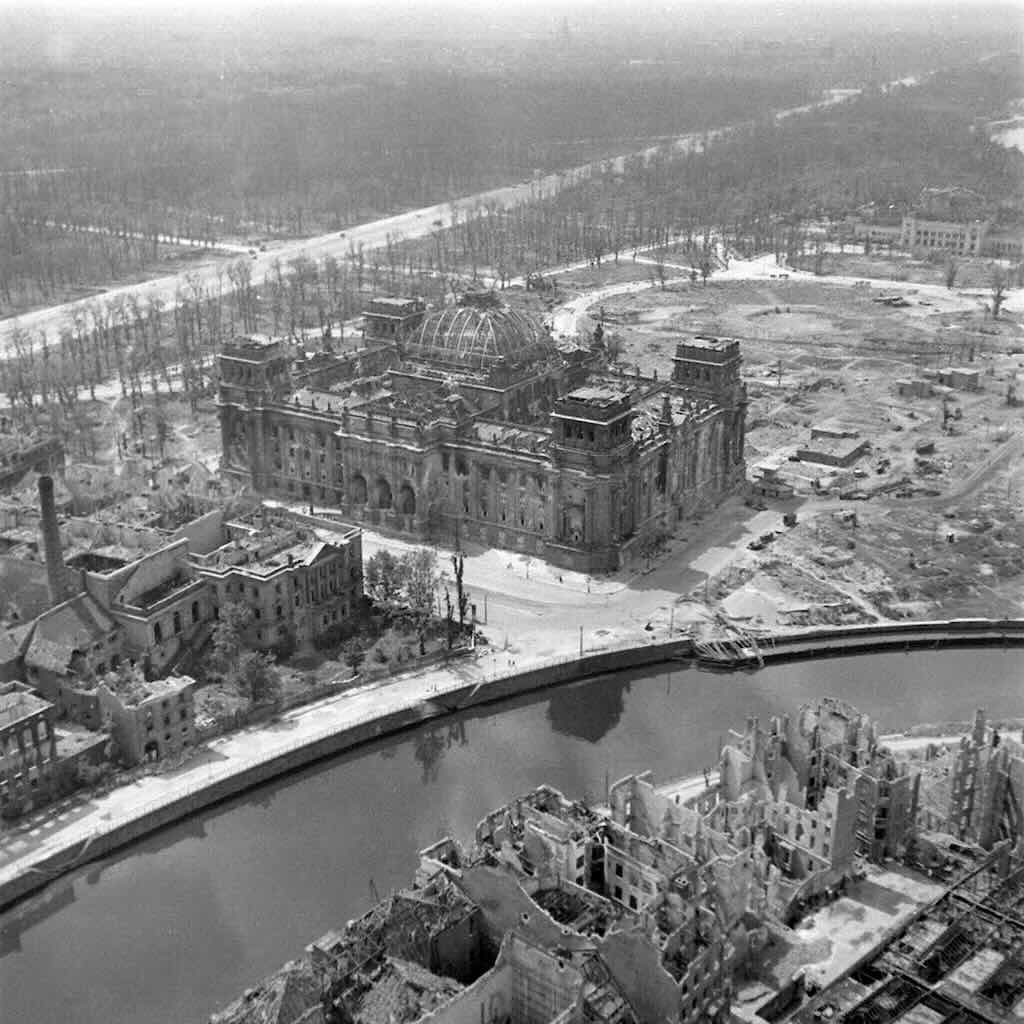
Until 1990 the building was used for occasional meetings and one-off events, but in 1994 Normal Foster was asked to include a new dome in his reconstruction proposal.
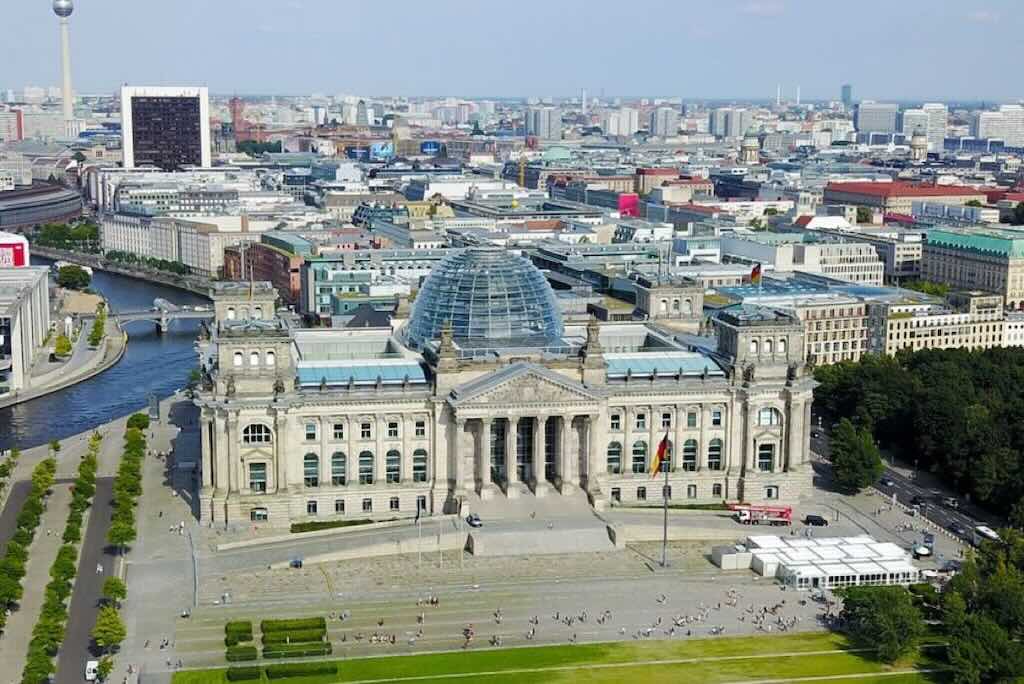
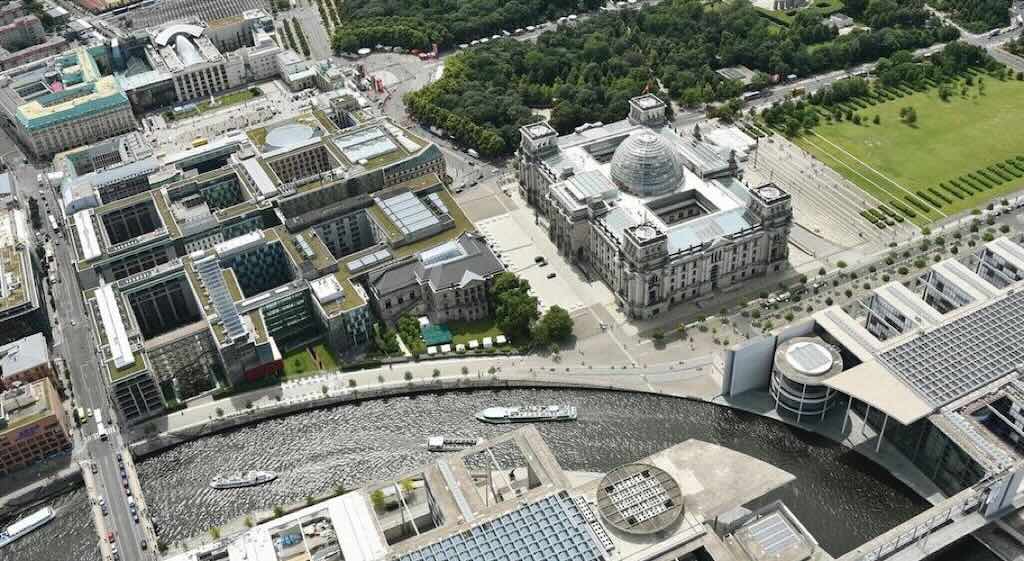
The building was completed in 1999, including the huge glass dome with its two steel spiralling ramps suspended from the ribs. From the top there is an impressive view over the city.
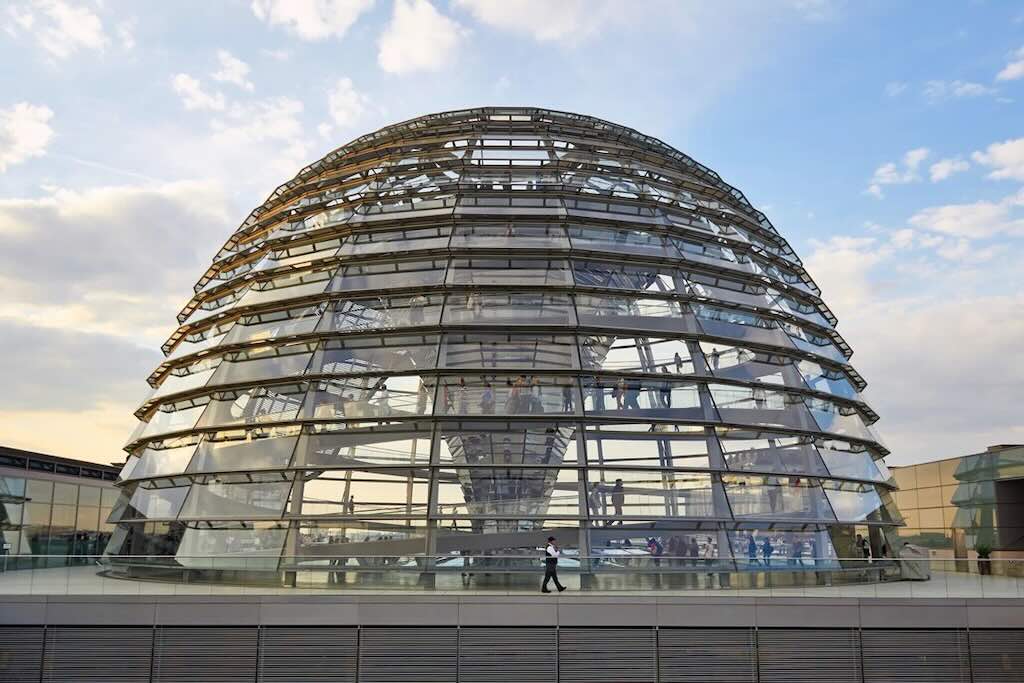
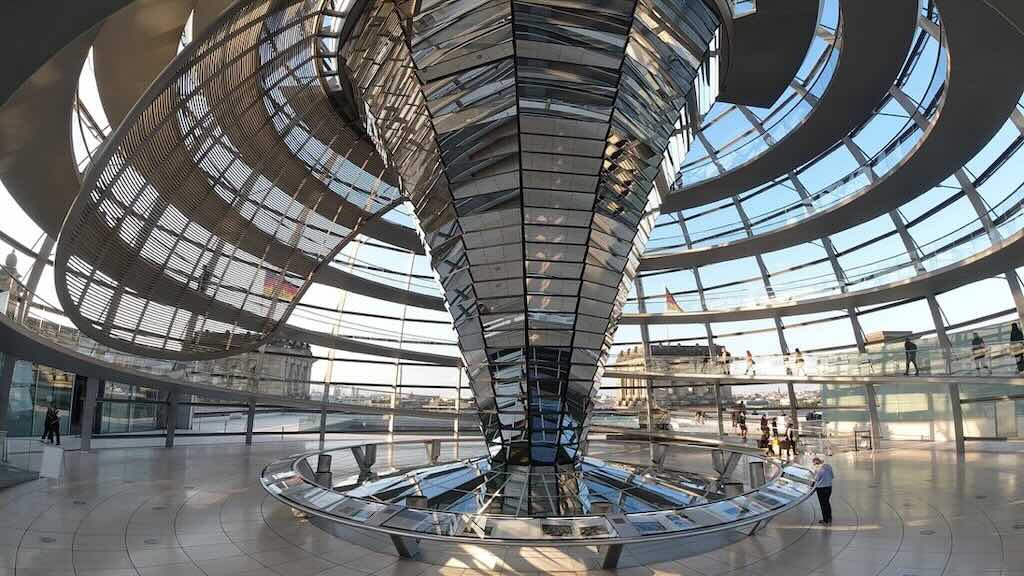
Below is my wife enjoying the view over the desolate looking Kanzleramt, in July 2001.
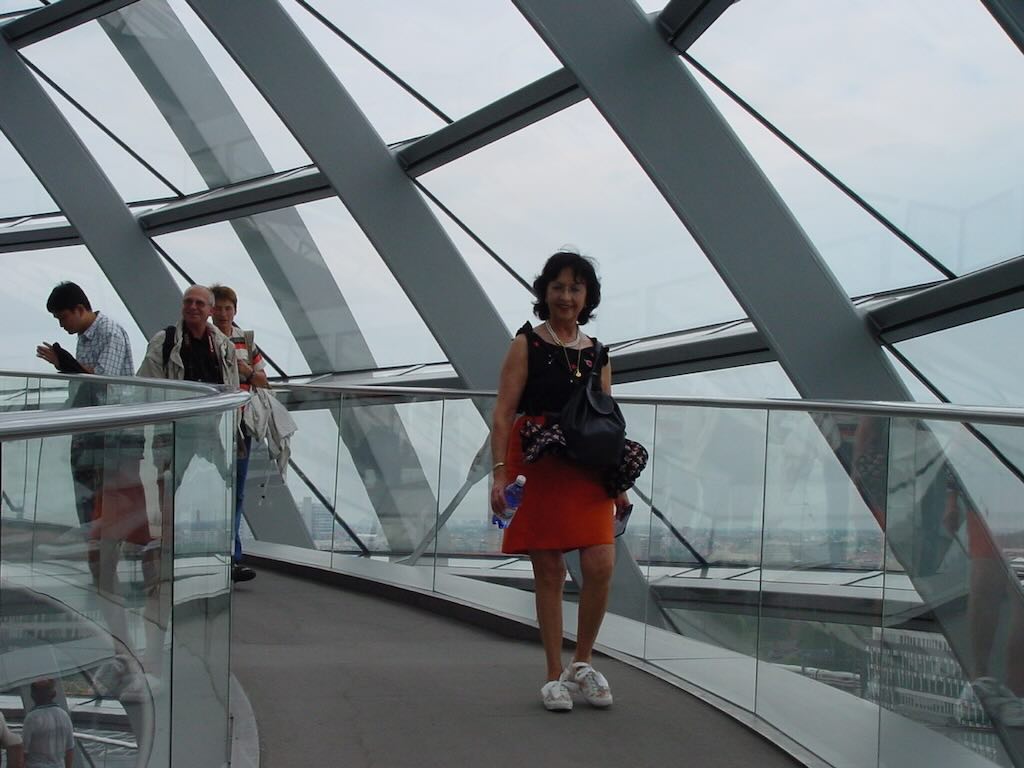
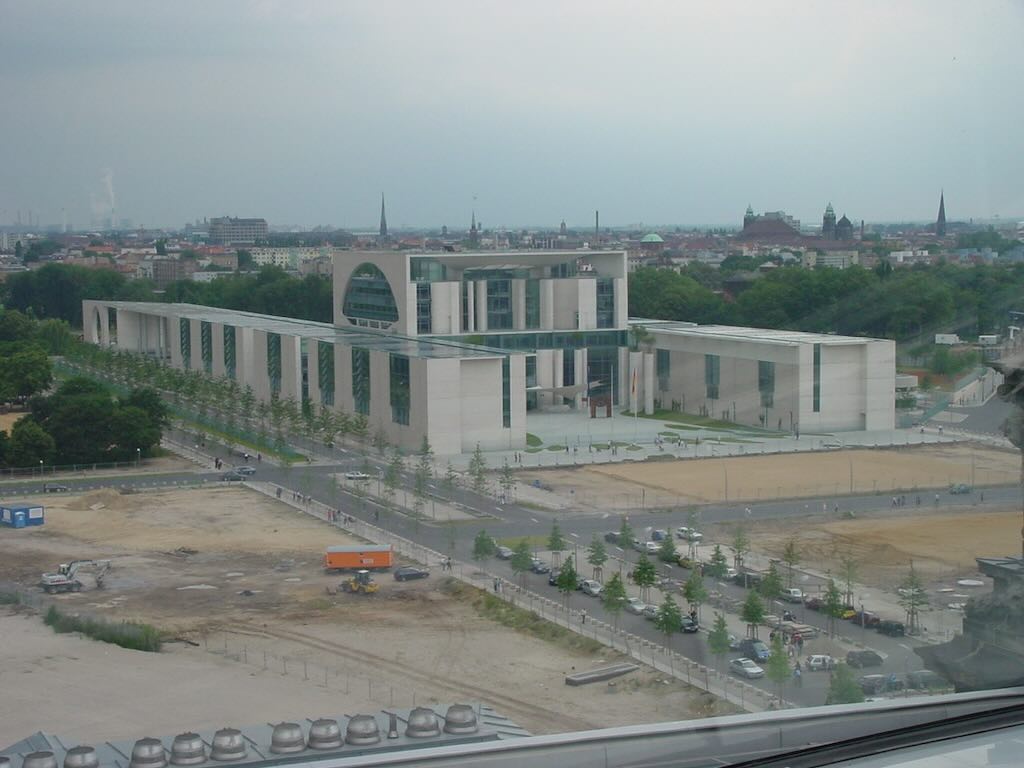
And now for a little bit of architecture, one of my favourite topics.
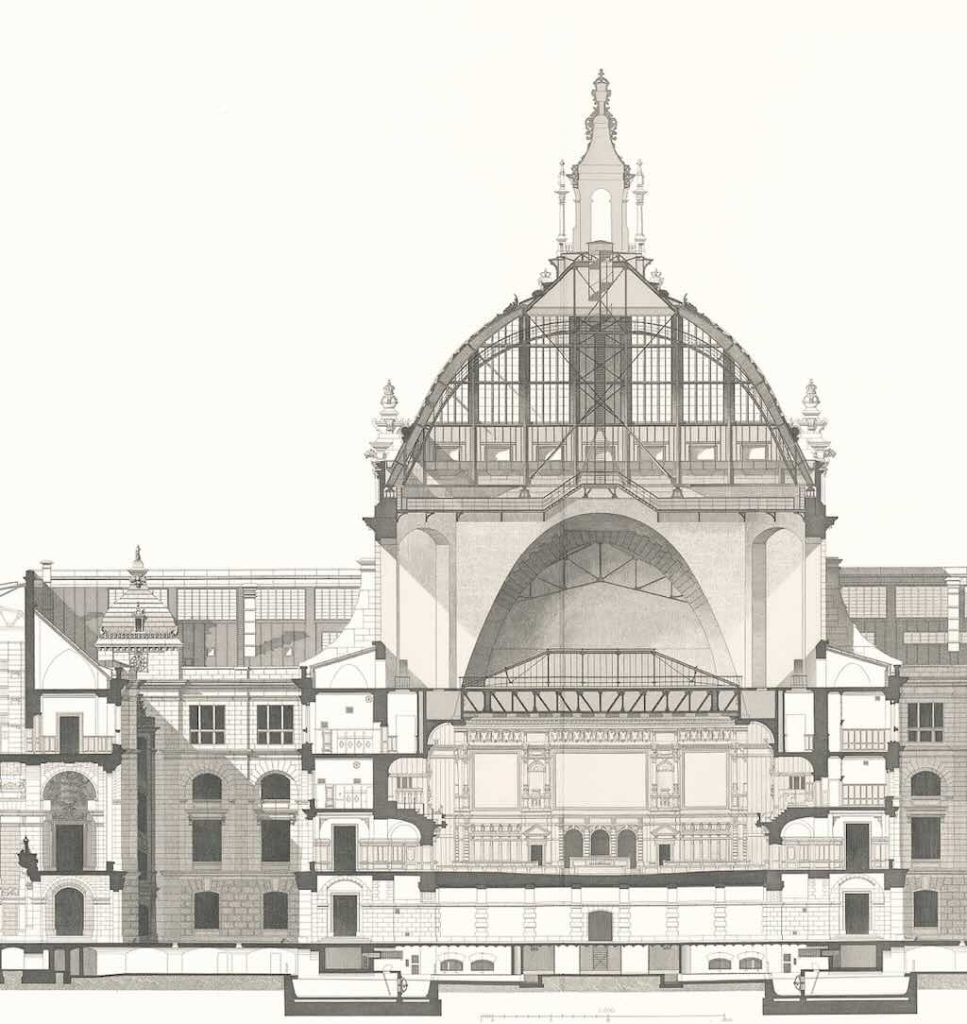
Above we have a section through the original Reichstag, and below we have the new Reichstag.
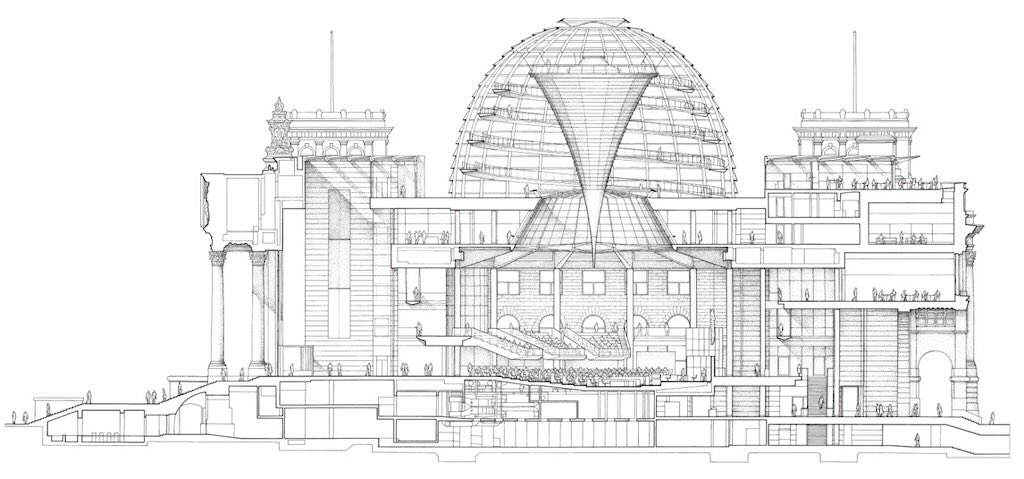
The dome itself has a diameter of 38 m and a hight of 23.5 m, and is built with 24 steel ribs.
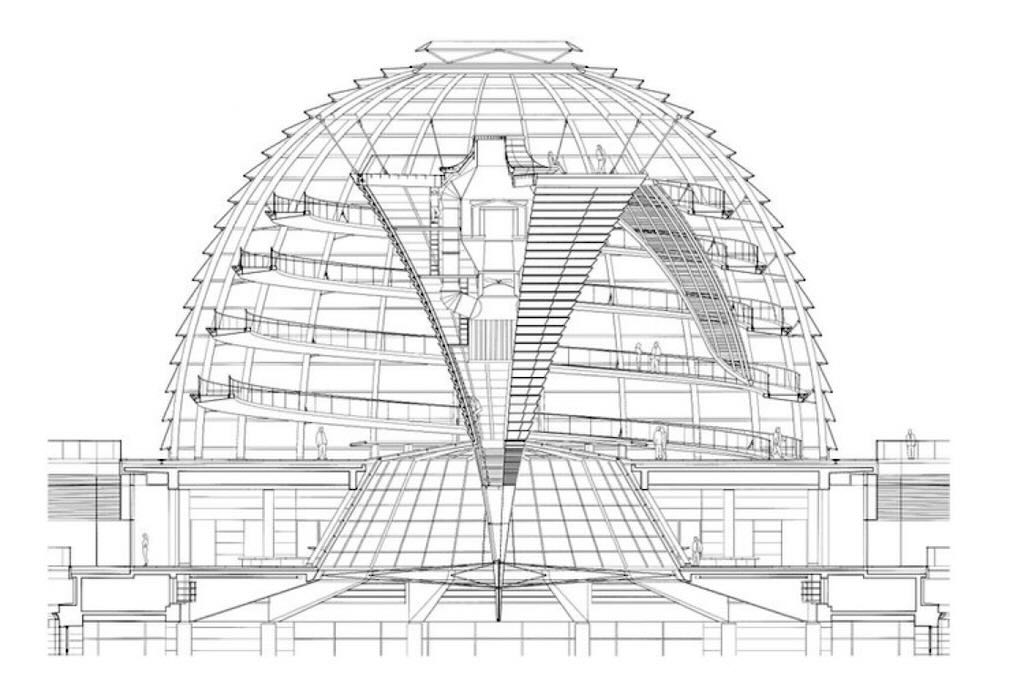
The 24 ribs are made of 50 cm diameter tapered steel. Attached to the ribs are a series of 21 cm by 10 cm steel trapezoidal rings. They support a double series of 1.2 cm thick laminated safety glass panels. The ramps are hung on the circular beams and lead up to a viewing platform sitting on top of the light cone. The light cone itself (below) is a conical steel structure covered in mirrors, and if we look carefully there is a 12 metre high element that revolves automatically to provide shade.
